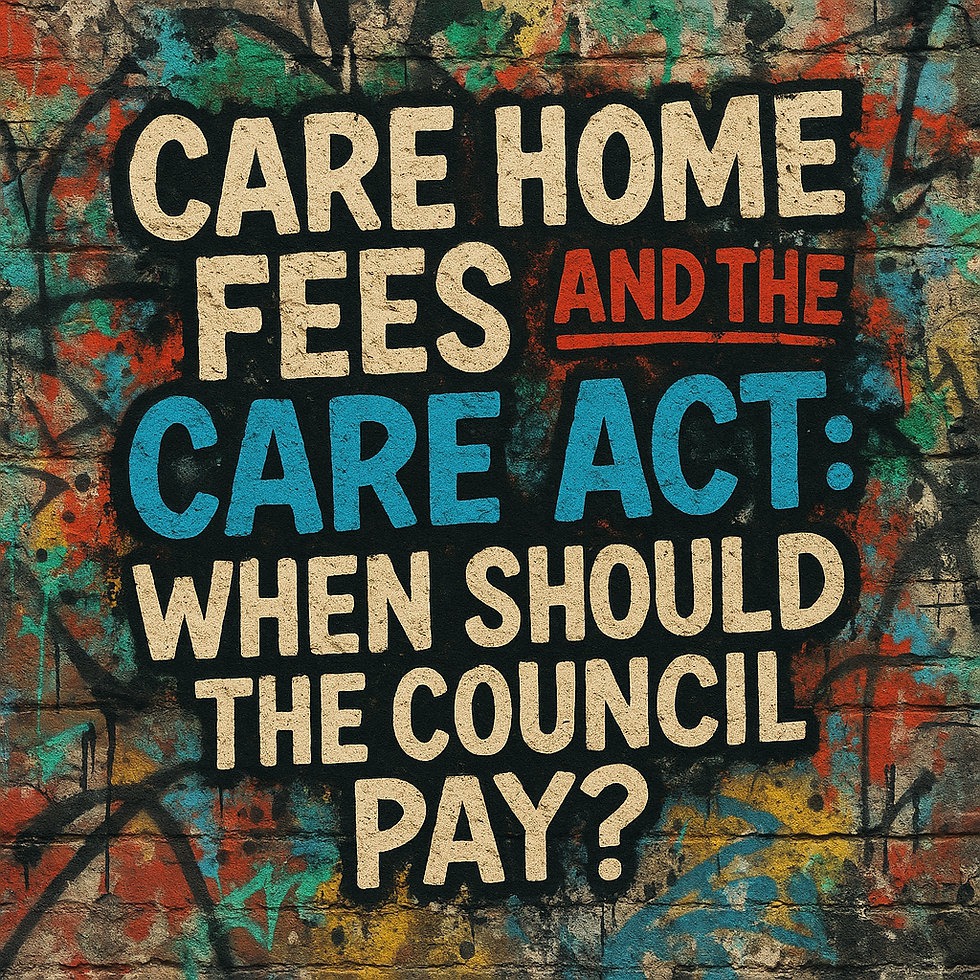Cognitive Assessments
- Team Nellie

- Feb 15, 2022
- 3 min read
Updated: Apr 21, 2023
All of our Social Workers at Nellie Supports are accredited Montreal cognitive assessors, sounds impressive, but what is it and why?
Why is a cognitive assessment completed at all?
There are several reasons that we use cognitive assessment tools when assessing mental capacity.
Firstly, many people live with undiagnosed conditions such as dementia; this can be because they simply decline to attend appointments so are unable to gain an official diagnosis or, more recently, due to delays caused by the Covid-19 pandemic. In these instances, A cognitive assessment allows us to evidence the individual cognitive impairments to be utilised in court reports as evidence of an impairment of the mind or brain.
Secondly, a cognitive assessment is a great "snapshot" of how the individuals brain was working on the day of the assessment and potentially the decision being made, its great additional evidence to go alongside things such as a Will or Lasting Power of Attorney. If either is contested on the grounds of lack of capacity, the Cognitive assessment could be the evidence that proves there was no impairment of the mind or brain.
Thirdly, it's a great way for us as mental capacity assessors to evidence that we were aware of an impairment. It can be quite often that when a decision is contested, the argument is that "well the assessor didn't know mum had dementia" (after all, if we aren't told, we can't know!). A cognitive Assessment strengthens our capacity assessment as we are able to evidence while we may not have been made aware of the specific diagnosis, we were aware of the person cognitive function on that day.
Another benefit of completing cognitive assessments is that they are able to evidence improvement (or worsening) of cognitive functioning over time. This can be especially important in cases whereby someone wishes to be discharged from the court of protection; a cognitive assessment in year one may show a low score of 15, whereas in the second year, this score has increased to 21, and in the third year has improved to near normal cognitive function (26+). All of this helped to evidence improvement in cognitive function and is great supportive evidence.
Finally, as a Social Work practice, we can be invited into someone's life prior to any other intervention or service; by completing a MoCA, we have in the past identified cognitive impairments before they have been visible to those around the individual, which has resulted in an earlier referral to GP services for support.
So Why MoCA?
There are lots of different cognitive assessment tools available, one of ht most famous being the Mini-Mental State Examination or MMSE, which infamously asks questions such as "whos the prime minister".
There's also the Addenbrookes Cognitive Assessment or ACE III, which is more lengthy than the MMSE but has a higher diagnostic accuracy. In fact, the ACE III has a higher diagnostic accuracy than the Montreal Cognitive Assessment (MOCA).
For us, as a Social Work Practice, the MoCA is a perfect balance between accuracy and efficiency. Our main priority is to ensure we gain enough evidence to support the outcome of a mental capacity assessment; for many of our clients, this can be emotionally and physically draining in itself, the MoCA assessment ensures the least amount of additional stress is added whilst also allowing us valuable insights and evidence about a person's cognitive functioning.
The research surrounding the MOCA is mostly positive, with
Evidence to show that the MoCA is capable of detecting change over time and seems to be a valid tool for monitoring cognitive change. Additionally, Davis DHJ et al. (2021) found in their research that the MoCA was beneficial at detecting dementia, with an average
detection of 94%.
As a practice, not only have we helped to identify cognitive impairments and referred people earlier than may have normally happened, we have also utilised MoCA to help evidence frontal lobe paradox with clients showing no cognitive impairment on the MoCA test despite severe cognitive impairments evidenced in their ability to complete tasks.
Our final reason for utilising the MoCA over other cognitive assessments is simply that the MoCA training and accreditation is superior to that of any other cognitive assessment, with social workers not only required to pass a specific training program before administering the test but ensuring they remain up-to-date with relevant information around the MoCA test.




It's interesting how you highlighted the pervasive challenge of maintaining sustained focus amidst constant digital distractions, a point many of us grapple with daily. I've found that understanding one's own cognitive strengths and weaknesses can be a game-changer here, allowing for more tailored productivity techniques rather than a one-size-fits-all approach. While many strategies exist, truly optimizing personal performance often begins with a clearer picture of one's core cognitive functions and how they influence our ability to concentrate, learn, and problem-solve. For those looking to gain this deeper insight, a well-designed online resource can help you evaluate cognitive functions and identify areas for improvement.
It's so true, as you mention, that a cognitive assessment provides a crucial 'snapshot' of an individual's cognitive function on a specific day, especially when it comes to supporting the validity of legal documents like Wills or Lasting Powers of Attorney. This point about its utility in contested capacity cases is particularly vital, as it offers objective evidence that can often be the deciding factor in upholding someone's wishes or an assessor's findings. Understanding the specific domains and types of questions involved in these assessments can be incredibly helpful for families and individuals preparing for or interpreting the results. For anyone looking to gain a clearer picture of understanding cognitive assessment components, there are some excellent resources available that break…
Excellent breakdown of cognitive assessments' vital role in mental capacity and legal evidence. Knowing cognitive function is key. For more on such tools, visit Wonderlictest.